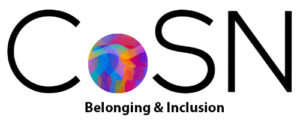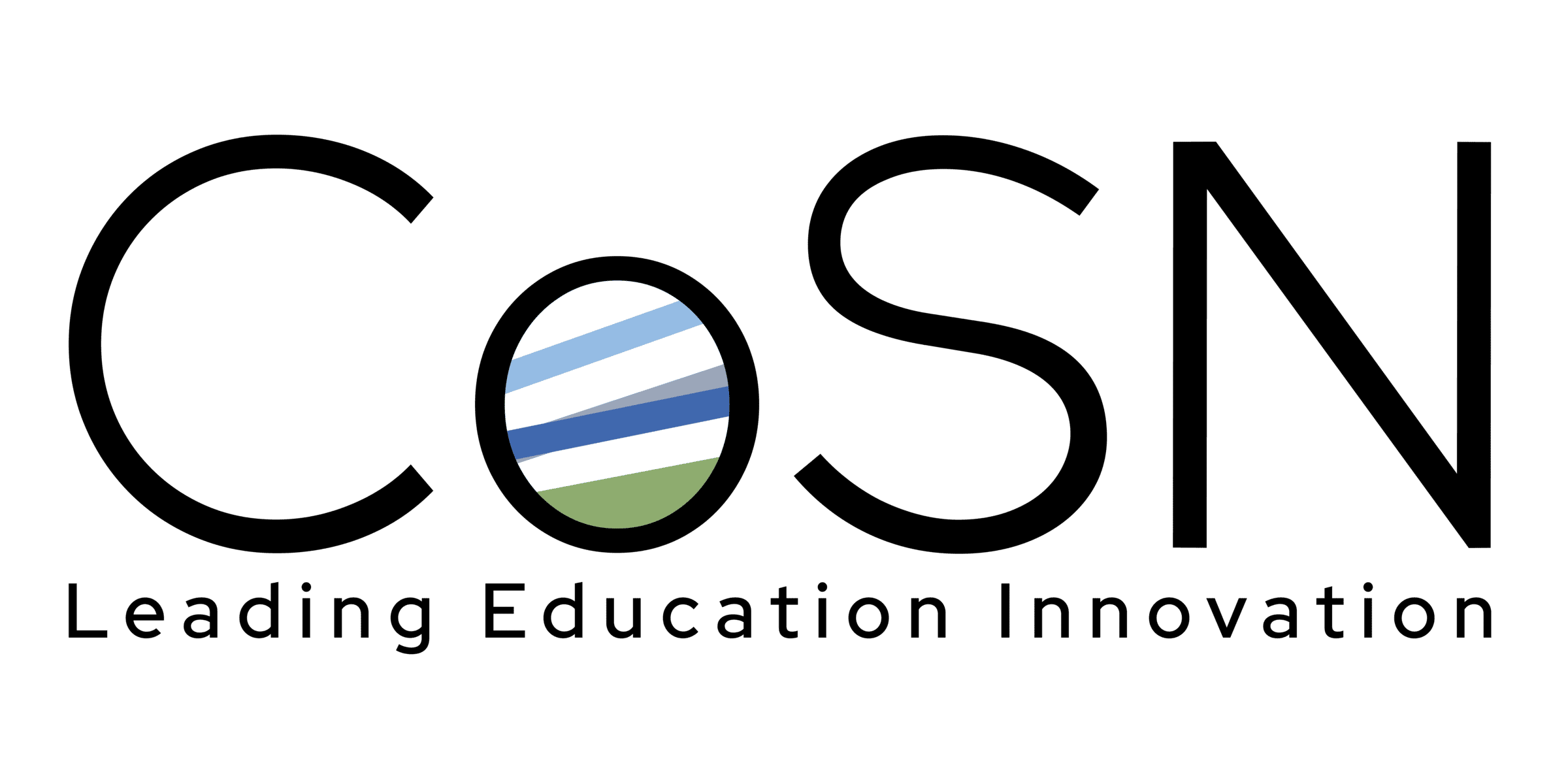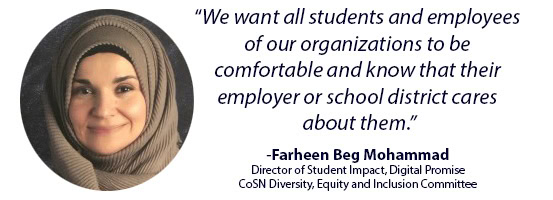Even in this age of heightened awareness of belonging and inclusion; workplace and education leaders might not be aware of the advantages of instituting a Belonging & Inclusion Calendar. Creating a comprehensive calendar that includes relevant cultural and religious days of note helps engender a sense of belonging for all and helps efficient workforce scheduling. We chatted about Belonging & Inclusion calendars’ benefits and positive impact with Farheen Beg Mohammad, Director of Student Impact at Digital Promise.
Belonging & Inclusion Calendars Improve Representation
Celebrating the meaningful marks sprinkled throughout the year demonstrates a sense of inclusion and belonging for all.
“When you feel represented, it adds to your well-being,” says Mohammad. “We want all students and employees of our organizations to be comfortable and know that their employer or school district cares about them.“ 
How is the spirit of belonging shared and enjoyed during holidays? Not every student, staff member, or educator shares the same holidays.
“We live in a country with a majority of a background which celebrates Christmas,” says Mohammad. “There’s lots of gift sharing, talking about traditions, but then there is someone like me who does not celebrate Christmas. I have no issue with celebrating the holiday because I welcome belonging. It adds to the richness of our experiences. However, we need to recognize that there isn’t that same treatment when other people’s holidays come around. Leadership isn’t giving gifts to their staff. There’s no “Secret Santa“ happening on these other holidays, which are just as meaningful to those who celebrate them. They don’t even get a simple “Happy ____!“
Being unaware of others’ holidays can leave students, staff, or educators feeling left out. They might feel isolated and forgotten, that their holidays are less than.
“They definitely know they won’t be getting a gift at that time from you, so it just feels like their happiness is not your concern. We’re not asking anyone to join conversations about personal beliefs, God, or religion. It’s just about simple recognition.“
Calendars Can Combat Inequity
An underlying and often unseen unfairness can be helped by the presence of an inclusive calendar of special dates.
“We live in an environment where people’s views can be viewed negatively by others,” says Mohammad, “A personal belief can even cause someone to be terminated from a place of work or expelled from an educational institution. As of now, teachers or employees in the private sector have to save their personal days for the use of their holidays rather than pushing to be recognized in the same way as the majority.“
This creates an access issue when it comes to benefits.
“If someone like me wants to take a random date off to celebrate a friend’s wedding or attend a child’s college graduation, I have to think twice because I have to save my holidays or my personal days off for a time that I also value, such as my religious holidays,” says Mohammad. “There is no concern about saving personal days for Christmas or New Year’s, because the office or school district already accommodates those holidays. So we have different benefits.“
Seven Reasons to Include a Belonging & Inclusion Calendar in Your District or Workplace
- It creates an inclusive workplace environment.
- Employees and staff feel more valued.
- It is fair.
- Students feel seen and cared about.
- It inspires a sense of belonging.
- It decreases isolation.
- It offers efficiency in scheduling.
Practical Benefits of Belonging & Inclusion Calendars
Undoubtedly, offering a public calendar of inclusive events and holidays helps leadership increase understanding and representation. It can help provide time off for a variety of observances and special days with targeted EI events.
“Schools and organizations need to consider their demographics and utilize all the stakeholders in the decision-making when creating a Belonging & Inclusion calendar,” says Mohammad. “A calendar committee could be created that would allow all voices to be heard. It just makes sense that creating time off for days when a large population will be out is just a better use of time.“
In a climate where employees’ personal beliefs can be wrongly translated as expressions of hate or political statements, raising awareness can improve understanding between different groups of people.
“This is something you just prioritize. If you find this important, you implement it as you would any other policy and make sure others are heeding and accepting it,” says Mohammad. “It should be something which includes everyone’s voice and comes down from leadership.”
If organizations are not recognizing, for example, that an employee might be fasting for a month or have a three-day holiday coming up which they need to plan and organize for, their stress level or anxiety prior to those holidays might be perceived as a lack of interest in their work or studies. Which is simply not the case, right?”
Mohammad likens this reality to that of Christmas, which is more involved than just occupying mental and emotional headspace or focus for the single date of December 25.
“We know this is an involved holiday—there is travel that needs to happen and preparations. All employees welcome that recognition and appreciate the extra time off. Growing up in an environment where only a few major holidays were recognized caused my family to have to work on our own holidays or take final exams during a time when we should have been with family and friends feasting.“
When schools or organizations don’t recognize holidays such as Martin Luther King, Veterans Day, Juneteenth, or Indigenous People’s Day— or make them “floating” less-than holidays, it sends a loud message.
“There is an increased awareness nowadays, assuring individuals who request time off, however, there is still progress to be made. With the prevalence of social media, the global community has become more interconnected. It is essential to stay informed and acknowledge the importance of embracing and celebrating belonging.”
Author: Sascha Zuger, Education Technology Journalist
Topic submitted by CoSN’s Belonging & Inclusion Committee

Published on: June 19, 2024
CoSN is vendor neutral and does not endorse products or services. Any mention of a specific solution is for contextual purposes.



